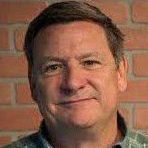Kirby Smart: ‘Not going to be normal’ having players back on campus
Does Kirby Smart have concerns about Georgia football players returning to campus next week? Yes, lots of them.
That was only one of several takeaways from a 26-minute Zoom video-conference meeting Smart held with reporters Thursday morning from the Butts-Mehre football complex in Athens. The SEC last week gave the go-ahead for league members to allow their players back on campuses to participate in voluntary workouts starting June 8. But the process of bringing those players is already well underway with a litany of screening and testing procedures, as well as cleaning and disinfecting protocols being put in place.
Smart said players will begin trickling back into town over the next week, and each will have a complete medical workup before being allowed to join the team for those workouts, which will also come with long list of guidelines and precautions.
“It’s not going to be normal,” Smart emphasized. “It’s going to be completely different. And a lot of it is because of our state. We’re going to adhere to the policies of our state.”
Smart said players essentially are “coming back on their own” and that they are not required to participate if they’re not comfortable. He didn’t have an exact number yet and indicated that, so far, he’s not aware of any players that wouldn’t be participating.
Georgia currently has 87 players on scholarship, including 25 freshman signees and two graduate transfers.
“We’ve been in communication with our players,” Smart said. “We have Zoom meetings with them football-wise eight hours each week. A lot of that time is spent not just on X’s and O’s, but on information. … We’re anticipating everybody coming back on a voluntary basis. We don’t have anything to indicate that’s not the case.”
The players will be required to clear a medical screening and a physical off campus, then will be given a test for COVID-19 as soon as they arrive back on campus. Once they have cleared medical protocols, they will be allowed to work out at UGA’s facility in groups of 20 divided by subgroups of no more than seven.
“So you’re looking at a seven-person rotation in a 12,000-square foot weight room, and they’ll be spaced out,” he said. “There’s a lot of protocol that goes into it. … Every session we have they’ll be a cleaning crew that comes through wherever we are. They’ll only be one door in, one door out, won’t be using the locker room. There’s a lot of different things that go into this.”
Smart said more than half of the players already have some sort of off-campus housing arrangement. However, he said they are still working with UGA’s housing office to determine where those that do not will stay.
Smart also said Georgia has a specific plan established by sports medicine director Ron Courson in case any of its players test positive.
“We’ve got a policy in place and medically it’s been explained to the parents and players,” Smart said. “Each guy will have the option of going back home if they test positive, and we have a quarantine policy we’ll be able to put guys into should they test positive. If it happens during a workout period, we’ll have contact-tracing procedures for the guys who have worked out together. Ron and his staff have a lot of things in place.”
Smart said that Georgia has not projected what might happen for the season and what it might look like if it gets start.
Smart said he has the same concerns any parent would. He said the accuracy of the tests, still widely debated in the medical community, “is probably the scariest thing.” He pointed out that he has not been able to visit his own parents in person since the coronavirus was declared a pandemic in March.
As for if and when football season is played, Smart promised that the SEC is making its determinations only from “medicine and science” and that the financial impact is not a determining factor.
“The last thing we need right now is a flare-up,” Smart said.
At the end of it, though, Smart said he was confident having the players on UGA’s campus was safer than them being at home.
“We’ve got one of the best medical staffs in the country,” he said. “… Anywhere they’re working out, in a local gym, at home, in a backyard, wherever that is, can you say that environment is more safe than one that is professionally cleaned and monitored and taken care of by our staff. As a parent, I’d feel much better about my son or daughter being able to work in that environment, and we found that to be the case with most of the kids we talked to.”


